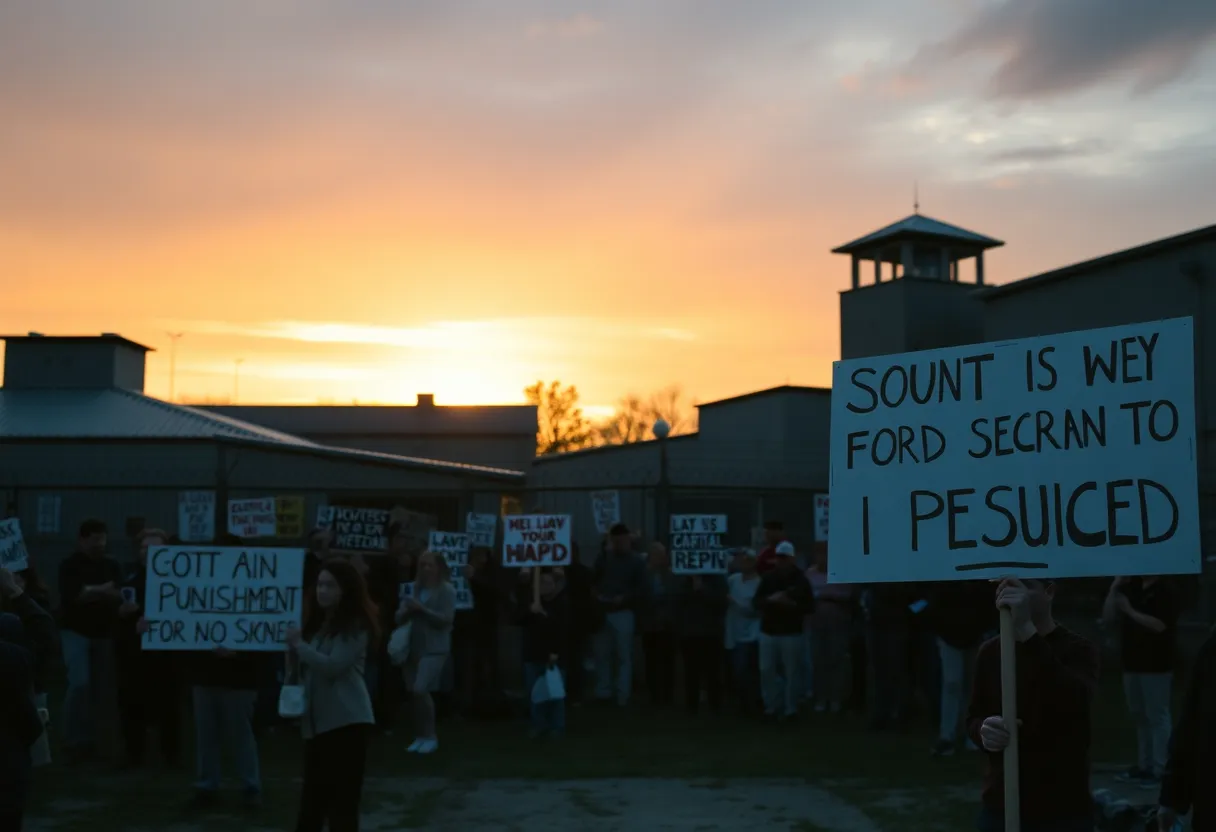News Summary
Mikal Mahdi was executed by firing squad on a Friday evening in South Carolina for the 2004 murder of Capt. James Myers. The execution marked a significant moment in the state’s use of capital punishment, with Mahdi’s case highlighting critical issues surrounding crime, punishment, and mental health. Despite pleas for clemency, Governor Henry McMaster did not intervene, and the controversial firing squad method continues to be debated among advocates and attorneys.
Mikal Mahdi Executed by Firing Squad in South Carolina
In a **dramatic** turn of events as far as justice is concerned, 42-year-old Mikal Mahdi was executed by firing squad on a recent Friday evening in South Carolina. This execution was tied to a shocking murder that took place almost two decades ago, specifically the **2004 ambush** killing of **Capt. James Myers**, a 56-year-old off-duty police officer.
The Gruesome Crime
Capt. Myers was brutally shot nine times and set ablaze by Mahdi, who then went on to steal the officer’s **unmarked police truck**. This horrific act stunned the community and has haunted Myers’ family ever since. The relationship between couples can often have deeply meaningful places tied to their story, and the location of Myers’ murder was particularly poignant, as it was where he had married his wife.
Execution Details
The method of execution chosen for Mahdi was noteworthy as South Carolina has only seen five **firing squad** executions since 1977, and Mahdi’s was particularly significant for being the second firing squad execution this year. Earlier in March, another inmate, **Brad Keith Sigmon**, was executed in the same manner, marking the first usage of **this method of execution** in the United States since 2010.
During Mahdi’s execution, three bullets were aimed directly at his heart, and he was pronounced dead at **6:05 p.m. ET**. Witnesses described a scene of tension as Mahdi cried out upon being shot, but he continued to breathe for around **80 seconds** before finally gasping his last breath. Leading up to his death, Mahdi requested a significant last meal that included **ribeye steak**, **mushroom risotto**, **broccoli**, **collard greens**, **cheesecake**, and **sweet tea**.
A Troubled Life
Despite the heinous nature of his crime, Mahdi’s defense team emphasized a troubled upbringing, advocating that he should have received **mental health support** during childhood. They argued that Mahdi had a traumatic background which included repeated suicidal threats. His original trial faced criticism as well, with arguments that the defense team provided an inadequate representation lasting only **30 minutes**.
On death row, Mahdi’s life remained tumultuous as he was noted for violent behavior, including allegedly stabbing a prison guard and attempting to escape custody at different times. His history of **violent actions** paints a picture of a man deeply troubled even before his involvement with the law took a grave turn.
Attempts for Clemency
In the days leading up to Mahdi’s execution, there were **pleas for clemency**, yet none were successful in swaying South Carolina’s Governor, **Henry McMaster**, who did not intervene before the execution took place. As conversations around the **methods of execution** continue, particularly the availability of lethal injection drugs, several states, including South Carolina, have started adopting alternative methods, like the firing squad.
Criticism and Community Response
Many attorneys and advocacy groups have voiced opinions labeling the firing squad as a **”barbaric”** form of execution, bringing into question the morality and efficiency of such methods. Interestingly, as South Carolina moves to resume more executions following a **13-year pause**, there’s heightened scrutiny on the practices. The state seems determined to tackle the backlog of cases, and Mahdi’s execution serves as a stark reminder of how complex and multifaceted the topic of capital punishment remains.
As the state grapples with these weighty issues, Mahdi’s case shines a troubling light on the interactions between crime, punishment, and the realities of mental health—elements that will surely fuel debates for many years to come.
Deeper Dive: News & Info About This Topic
- USA Today
- NBC News
- Live 5 News
- ABC News 4
- New York Times
- Wikipedia: Death Penalty in the United States
- Google Search: Mikal Mahdi
- Google Scholar: Mikal Mahdi
- Encyclopedia Britannica: Death Penalty
- Google News: Mikal Mahdi







